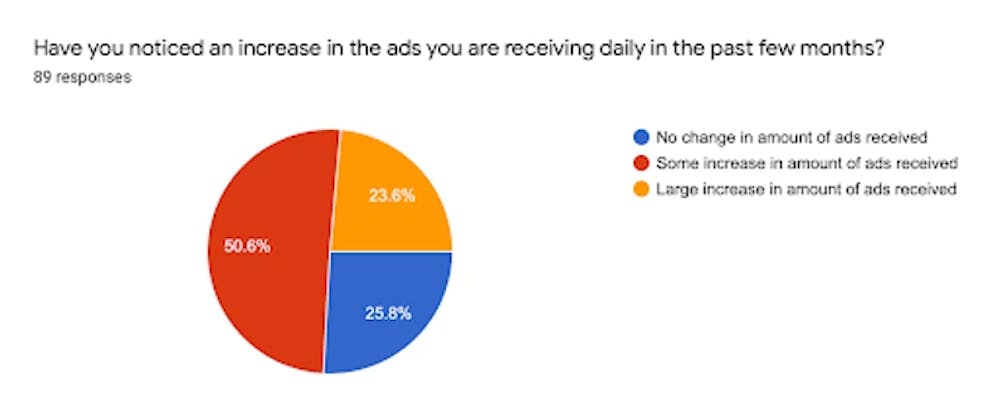Over the past decade, social media changed the way producers reach their consumers. On apps like Tik Tok, Instagram, and Snapchat, companies have re-marketed the way they produce their ads. I felt like I couldn’t enjoy any social media without seeing an ad from a company every couple minutes trying to get inside my head about how my own body should look. It seemed like every other post I saw on my feed involved “What I Eat in a Day to Stay Skinny During Quarantine” or “Do this 2 Week Shred Challenge to get abs” and finally I had enough. I decided to do a small study that researched how others felt about companies targeting teenagers’ insecurities.
The study focused on the age and gender of the individual as well the number of platforms of social media they are on, the ads they received, and how they felt towards these ads. Although the study might be small, with 89 responses, their results speak volumes.

While it may be understandable that companies would want to target teenagers to buy their products, why must it be done in such an unethical way? Do companies need to prey on young adults’ insecurities to make money? It’s utterly disgusting. When asked in the study if the individuals would like to share their feeling towards the topic, here were some of the responses:
“I didn’t see much wrong with my body until I started seeing this content on social media”
“It’s especially awful because this quarantine time is a critical time for people who may potentially relapse to their old issues which are extremely dangerous.”
“I think even the attempts towards “normalizing body types” ultimately continues the divide in people although they mean well. Like it’s not a nice feeling that it has to be declared publicly ‘these bodies are okay too guys!’”
“Makes me feel like I need to eat less to not get fat”
And these were just some of the responses. This is unethical and something needs to be changed. The point being made here is not that companies shouldn’t be able to target specific individuals into buying their products, that’s just marketing; the point is they can do so without using teenagers’ insecurities and body dysmorphic tendencies as their selling point. This is just one step we can take towards changing a culture that makes unrealistic body standards seem normal. We live in a world where people, and teenagers especially, compare themselves to people they see online, including celebrities that may have photoshopped or altered their content to a certain standard. To begin to stop this vicious cycle we can start by not using teenagers’ insecurities as a selling point.




